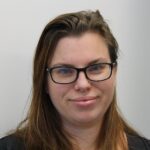Professor Stephen Lord
Senior Principal Research Fellow, NHMRC
NeuRA’s Falls, Balance and Injury Research Centre (FBIRC) researchers are world leaders in understanding human balance, fall risk factors and strategies for prevention of falls in older people.
Established in 2014, the FBIRC brings together the expertise of three senior research groups at NeuRA led by Professor Stephen Lord (Centre Director), Professor Jacqueline Close (Clinical Director) and Professor Kim Delbaere (Director, Innovation and Translation) to address falls and fall injury prevention and management.
Falls and fall injuries among older people are a large and growing problem in Australia. Every day, 14 Australians aged 65+ will die from a fall and 364 will have a fall that puts them in hospital.
Treatment of injuries from falls in older people cost over $2.3 billion in 2020, with multiple flow-on effects for ambulance services, loss of independence by older people, and family impact.
One of the most serious consequences of a fall is a hip fracture. There are approximately 20,000 hip fractures in Australia every year. A hip fracture is a devastating injury for an older person and for many results in pain and lasting disability which directly impacts on the ability to live independently. For some a hip fracture can result in a move to residential care or death. By advancing community and clinical understanding of the impact of falls, frailty and cognition, and ageing we’re proud to contribute to the delivery of better health care interventions and outcomes.

PhD student

Research assistant
Every dollar of community support enables our scientists to continue making life-changing discoveries that contribute to a brighter and healthier future.
Run, swim or bake your way to making a positive difference in the lives of people touched by brain and nervous system disorders.
Stay informed about our latest research breakthroughs, scientific discoveries and the incredible minds behind them – subscribe today.
Neuroscience Research Australia respectfully acknowledges the Bidjigal and Gadigal peoples of the Eora Nation as the Traditional Owners of the Land on which we stand and pay our respects to Elders past and present.
Redevelopment of the NeuRA website has been made possible by the generous support of Conexus Financial.